General
Ambassador Marantis delivers public lecture on Trade and Investment
Published
16 years agoon
“Thank you very much for welcoming me to Makerere University. I am here today as Deputy United States Trade Representative representing President Obama’s Administration on my first trip to Uganda.” Remarked Ambassador Demetrios Marantis as he kicked off his Public Lecture on U.S. – Africa Trade and Investment in the 21st Century, held at the Food Science and Technology Conference Hall on February 16th 2010.
“Thank you very much for welcoming me to Makerere University. I am here today as Deputy United States Trade Representative representing President Obama’s Administration on my first trip to Uganda.” Remarked Ambassador Demetrios Marantis as he kicked off his Public Lecture on U.S. – Africa Trade and Investment in the 21st Century, held at the Food Science and Technology Conference Hall on February 16th 2010.
He intimated that this trip was a culmination of a twenty year journey, which began while, he was researching a paper on philanthropic foundations and the development of higher education in Africa focused on Makerere University. The Ambassador could not hide his sense of fulfillment at finally visiting this center of excellence, which groomed many African leaders like Presidents Mwai Kibaki and Joseph Kabila including former President Mwalimu Julius Nyerere. However, he could not help but reveal that his mind was full of questions about the future of trade and investment between Africa and the United States, which formed the basis of his trip.
Talking about the opportunities created by the African Growth and Opportunity Act (AGOA) , Ambassador Marantis couldn’t help but notice that over the last eight years, U.S.-sub-Saharan African trade had more than doubled, a feat he hoped would improve even further with the establishment a regional American trade competitiveness hub in Nairobi ; funded by USAID, where Ugandans can receive AGOA-related training and technical assistance.
Referring to the challenges faced in the past, especially the global economic crisis, the Ambassador offered his assurance “I am committed to working with you to get things right. Together we can find the right economic policies, the right trade policies, and the right solutions for Uganda’s and America’s mutual prosperity.” He also mentioned his participation in the first-ever council meeting under the U.S.-East African Community (EAC) Trade and Investment Framework Agreement (TIFA) the previous day, which he hoped would deepen U.S. economic engagement and cooperation with Uganda and the other four members of the EAC.
After His Excellency’s remarks, Prof. Ddumba-Ssentamu, who chaired the Question and answer session thanked the Ambassador for his commitment to putting in place policies that would foster development, and reiterated that indeed, Trade and Investment were the way forward for Africa and Uganda in particular in as far as achieving economic growth was concerned.
Reacting to questions about the American Government continuing to offer subsidies to its farmers while on the other hand promoting AGOA and doing nothing tangible to help Uganda farmers actually diversify their exports, Ambassador Marantis admitted that AGOA had indeed registered as many challenges as it had successes. He acknowledged that one of these was the competitiveness of African products versus those from Asia, which have a lower cost of production and transportation. However, he emphasized that AGOA is only one such initiative of the American Government, with others aimed at different sectors like Transportation and Health.
With Uganda’s diversity of wildlife and unique climate in mind, a student from the Faculty of Economics and Management wanted to know what policies were in place to help Uganda profit from tourism. In response Ambassador Marantis revealed that he had only learnt that Uganda had unique tourist activities like gorilla trekking , mountain climbing and white water rafting after visiting for the first time. As such, he stressed that Uganda as a country needs to a better job of marketing itself on the tourism front so as to fully exploit this almost untapped sector.
A discussant who admitted to not hearing a lot about investment from the Ambassador’s talk was curious as to how the U.S. trade and investment strategy would eventually map out. The Ambassador used this opportunity to stress the goal of the TIFA, which was to enable Investors in the U.S. become aware of trade and investment opportunities, while at the same time helping its EAC counterparts to learn of American opportunities. He however noted that this was also based on the African countries creating an overall climate that is friendly to trade. He cited the example of the US-Rwanda Bilateral Investment Treaty (BIT) , signed in 2008 after favorable conditions of investment had been put in place by the Rwandan Administration.
The session got livelier, with the Ambassador appreciating the brilliance of the audience as he was often awed by the Students’ comments and questions. He however, urged the students to exploit the opportunities offered by Makerere University so that they could provide the much needed capacity in terms of policy making and implementation. He also counseled that it was not up to the U.S. to decide Africa’s path. He opined that Africa needed to identify its potential strengths, prioritize them, and exploit them fully so as to benefit from opportunities like AGOA. He discouraged the concept of “protectionalism” noting that countries like Vietnam were only able to experience exponential growth, after opening up their economies fully, and providing a conducive environment for investment. When put to task as to why American researchers and companies went ahead to patent those products manufactured as a result research done in Africa, which made accessing them expensive eventually, the Ambassador had to admit that whereas it was a delicate issue to deal with, there had been gradual progress made at striking a balance between not patenting so that that the eventual products are cheaper and patenting so that research-based companies and organizations might benefit from their investments.
Prof Ikoja-Odongo, who represented the Acting Vice-Chancellor Prof. Venansius Baryamureeba , thanked Ambassador Demetrios Marantis for delivering his inaugural lecture at Makerere and admitted that though it was a lively debate, the Ambassador was more at the receiving end of questions that should have been directed at Ugandan policy and decision makers. He concluded the lecture by encouraging the students to take on the Ambassadors challenge and become the much-needed professionals that they demand of this country. “Empowerment should enable you to go back to your community and put into practice what you learnt for the benefit the people” he said.
Click here to for full lecture document
You may like
General
Makerere University Leaders Call for Excellence in Research and Supervision as Academic Staff and PhD Students Receive Certificates
Published
1 day agoon
December 17, 2025By
Mak Editor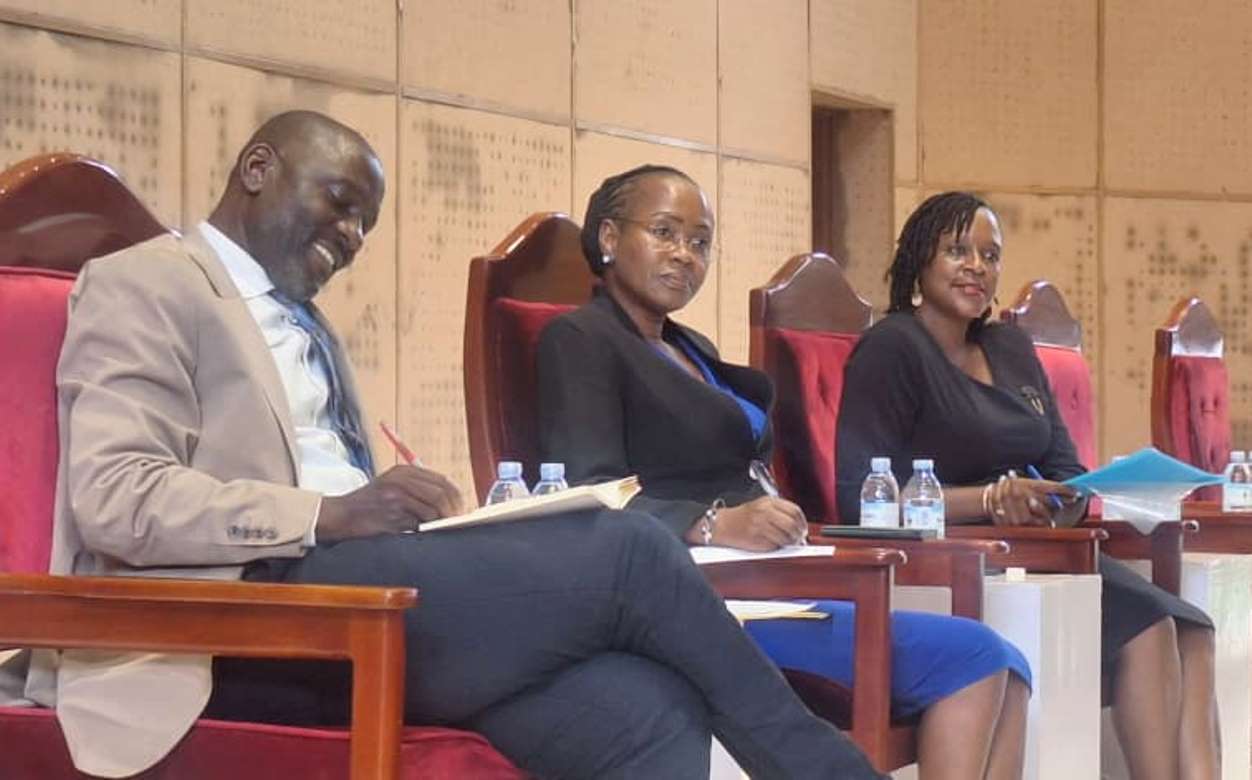
By Moses Lutaaya
Kampala, 15 December 2025 — Makerere University on Monday held a reflective and inspiring Certificate Award Ceremony at the CTF 2 Auditorium , Yusuf Lule to award academic staff who completed the Graduate Supervision and Mentorship Course and PhD Students who successfully undertook the University’s compulsory cross-cutting doctoral courses. The event was presided over by the Deputy Vice Chancellor – Academic Affairs, Prof. Sarah Ssali.
The ceremony honored the efforts and achievements of 58 academic staff members, 39 men and 19 women from various colleges including CEDAT, CAES, CEES, COVAB and COBAMS, who completed a rigorous three-week Graduate Supervision and Mentorship programme.
Additionally, PhD students were recognized for completing cross-cutting courses in Philosophy of Methods, Scholarly Writing and Communication, and Advanced Research Methods.
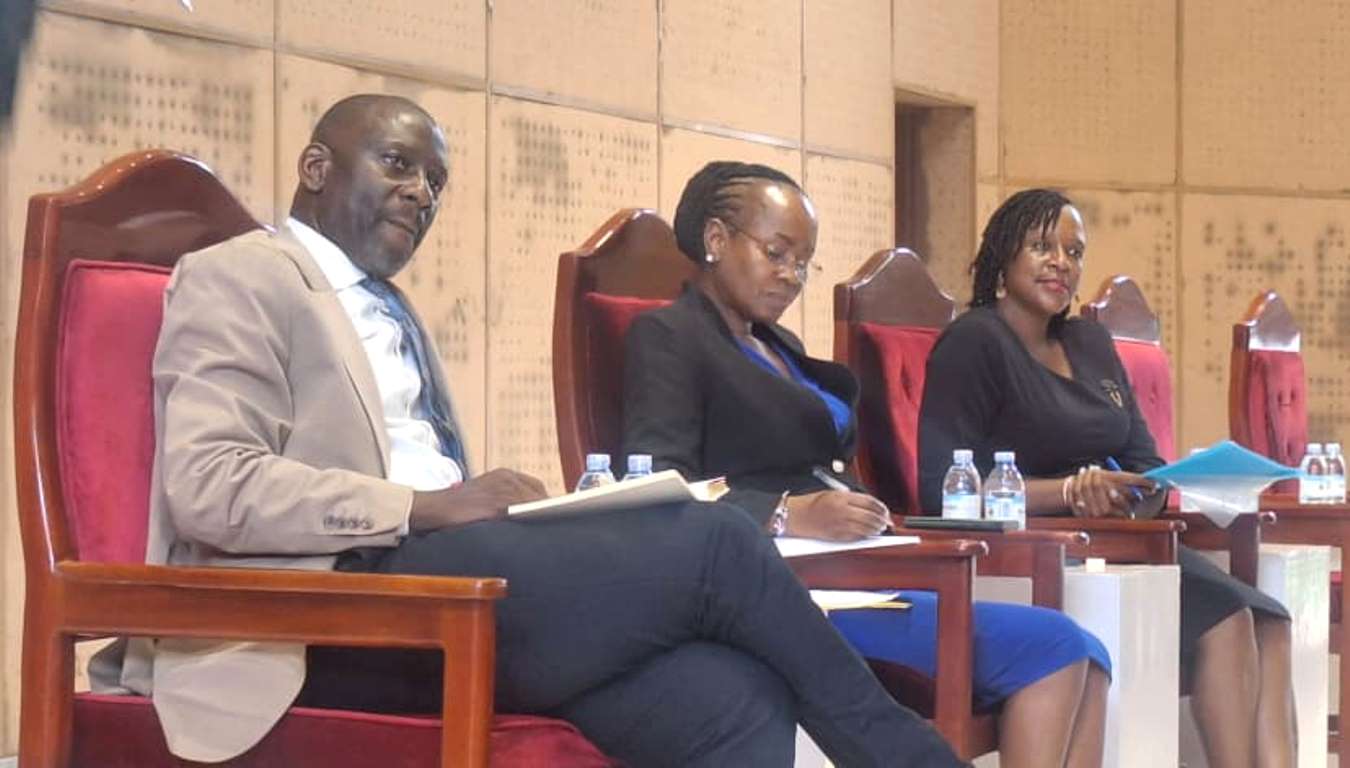
In her keynote remarks, Prof. Sarah Ssali, the Deputy Vice Chancellor–Academic Affairs, delivered a message of encouragement and renewed commitment to research excellence at Makerere University.
“It is both an honor and a privilege to be here today to celebrate a significant academic milestone, the completion of the PhD Cross-Cutting Courses by our students and the award of Supervision Certificates to our academic staff.”
“Your completion of this course is not just a personal achievement, but a critical contribution to strengthening the research and mentoring capacity of Makerere University.”
To the PhD students, Prof. Ssali offered warm congratulations and encouragement. “These courses have equipped you with essential tools to conduct high-quality, ethical research and to engage with complex academic questions. This achievement reflects your hard work, intellectual growth, and commitment to excellence.”
She reaffirmed Makerere University’s commitment to research advancement. “As a University, we remain deeply committed to fostering a culture of research excellence. We will continue to invest in both our students and our staff, ensuring that we uphold the highest standards in research and academic supervision.”
The Director of Graduate Training, Prof. Julius Kikooma, challenged the PhD students to approach research with urgency, intentionality, and a clear sense of purpose.
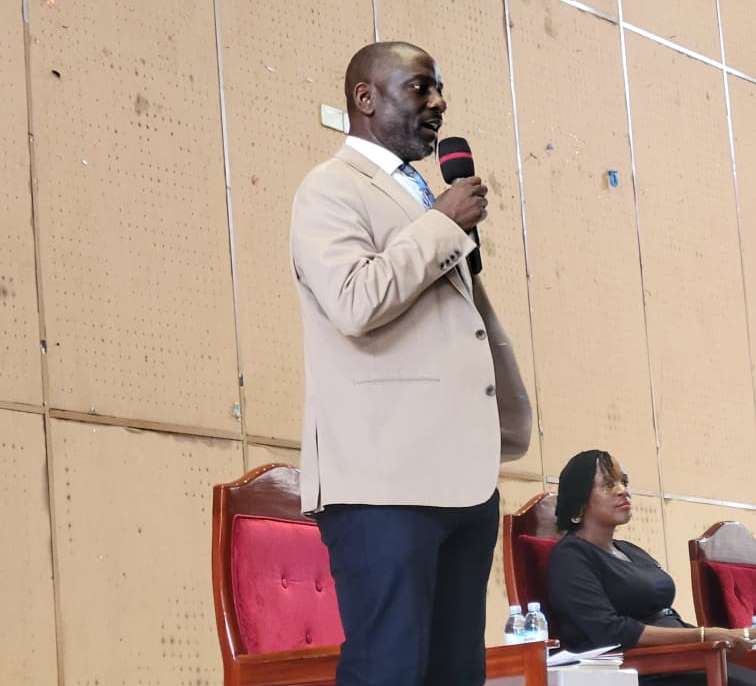
“Completing the crosscutting courses in Philosophy of Methods, Advanced Research Methods, and Scholarly Writing and Communication has not been an easy task. However, the certificate alone is not the end goal. Don’t simply compile these certificates. Make them meaningful.”
Prof. Kikooma emphasized that the value of the courses lies in applying the knowledge gained. “These certificates give you the foundation knowledge. The question now is: Can we see the application of that knowledge in your different fields?”
He further urged doctoral students to begin producing serious academic work now, not at the end of their studies. “If you are becoming someone to be listened to, start now. It means the course is becoming useful. Write about issues that speak to societal challenges. Produce thinking pieces. Produce better outputs. “Look for low-lying fruits that can make your PhD journey more exciting and impactful.”
Prof. Kikooma also reminded students that while the PhD journey is shared by the academic community, its weight is uniquely felt by the candidates. “Your PhD journey is ours as a group. But you feel the heat. Speak to us so we understand your challenges. “You cannot be here for more than three years. Why are some of you still here? Is the journey heavy? How can we support you to complete it?” He asked.
He encouraged students to build thought leadership through the PhD Forum, adding that the forum is a strong voice for the students. A PhD is automatic leadership in the knowledge domain. Why doesn’t the PhD Forum come up with periodic writings that reflect what communities are experiencing? Start now so that by the time you finish the course, you hit the ground running.”
The Ag. Director of the Centre for Teaching and Learning Support (CTLS), Dr. Dorothy Ssebowa Kyagaba, gave a message to the academic staff who completed the Graduate Supervision and Mentorship Course, speaking with admiration for their dedication and high level of engagement.

“I congratulate all the academic staff who have completed the three-week Graduate Supervision and Mentorship Course. Your commitment, hard work, and enthusiasm have been evident throughout the training.”
She described the course as a cornerstone of Makerere’s commitment to strengthening graduate supervision. “This course is a key component in Makerere University’s drive to strengthen the quality of graduate training, research supervision, innovation, and strategic partnerships.”
She highlighted the thematic richness of the training; covering Knowledge Production Perspectives, Supervisory styles, Supervisory meetings and conversation skills, Research Ethics, Intercultural supervision and diversity, Scholarly writing and feedback as well as Examination processes and Doctoral Viva. She expressed gratitude to the Directorate of Graduate Training led by Prof. Kikooma, and to Prof. Ssali for providing leadership that advances graduate training across Makerere University.
General
From Knowledge to Impact: Empowering Youth Leaders and Young Women with Transformative Leadership Skills
Published
4 days agoon
December 15, 2025By
Mak Editor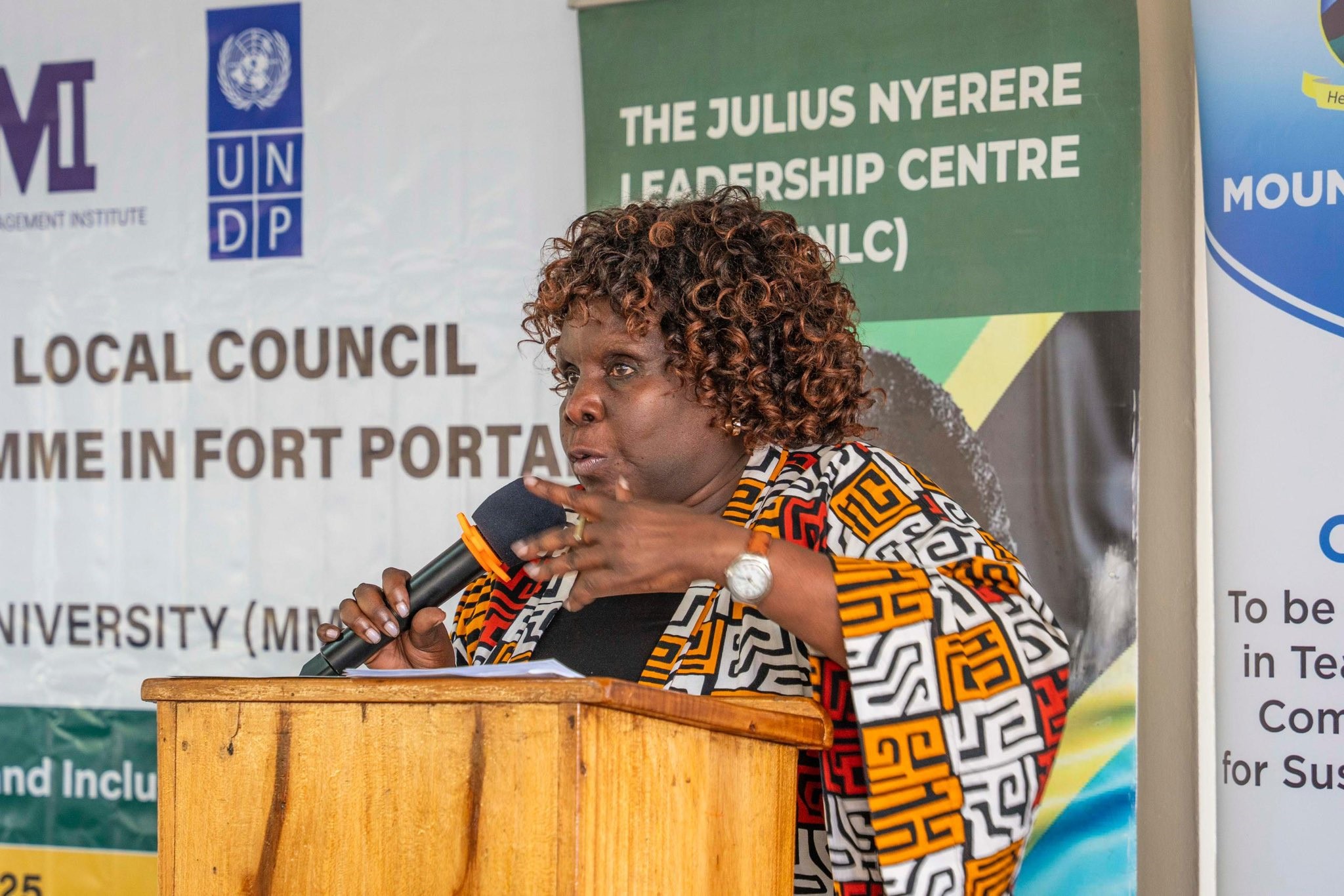
By JNLC Team
On 4th December 2025, more than 70 participants gathered at Mountains of the Moon University (MMU) in Fort Portal for a three-day comprehensive leadership training targeting youth, young women, and local council leaders.
Organised by the Julius Nyerere Leadership Centre (JNLC) in partnership with the United Nations Development Programme (UNDP), the training aimed to strengthen practical leadership skills and nurture a new generation of community-centered, ethical, and solution-oriented leaders.
The first day introduced participants to foundational themes such as servant leadership, the meaning of power in leadership, self-leadership, emotional intelligence, mental well-being, and effective communication. Through these sessions, participants gained practical tools to engage and influence communities responsibly, mobilize resources, and contribute effectively to sustainable development.
Honouring Nyerere’s Legacy of Transformative Leadership
In her remarks, Dr. Nansozi K. Muwanga, Executive Director of JNLC, urged young leaders from higher education institutions across Uganda to embrace their central role in shaping the country’s future. She stressed that Uganda’s developmental trajectory—and that of the wider East African region—will be determined by empowered, ethical, and visionary youth.
Dr. Muwanga reminded participants that the Julius Nyerere Leadership Centre draws inspiration from the leadership values of Mwalimu Julius Kambarage Nyerere, who championed youth as drivers of Africa’s development. Established in 2018 by H.E. President Yoweri Kaguta Museveni as a Presidential Initiative hosted by Makerere University and the Uganda Management Institute, JNLC continues this legacy by equipping young Africans with the intellectual, moral, and practical leadership skills required in a fast-changing world.
Expanding Impact Through the JNLC–UNDP Youth Leadership Programme
Dr. Muwanga highlighted that since 2021, the JNLC–UNDP Leadership Training Programme has empowered more than 700 youth leaders from Uganda and beyond. The programme cultivates a growing network of community-centered changemakers capable of influencing governance and driving sustainable development.
To address challenges faced by alumni—such as limited visibility, resource constraints, and weak mentorship—JNLC launched the Alumni Impact Activation Strategy. The initiative supports alumni-led projects aligned with UNDP’s G4D priorities through mentorship, empowerment, and visibility. This approach amplifies our investment in Uganda’s youth and ensures that leadership development translates into sustainable solutions in climate resilience, women’s economic empowerment, and digital innovation,” she noted.
Youth at the Heart of Africa’s Development
Reflecting on Africa’s demographic landscape, Dr. Muwanga noted that a youthful population presents both immense opportunity and profound responsibility. Realising this potential requires intentional nurturing of leaders who value justice, unity, ethical conduct, and collaborative governance.
“This is the aspiration that guides our work at JNLC,” she affirmed. “We aim to equip young people with the skills to think critically, lead responsibly, and contribute meaningfully to Uganda’s development and Africa’s broader ambitions.”
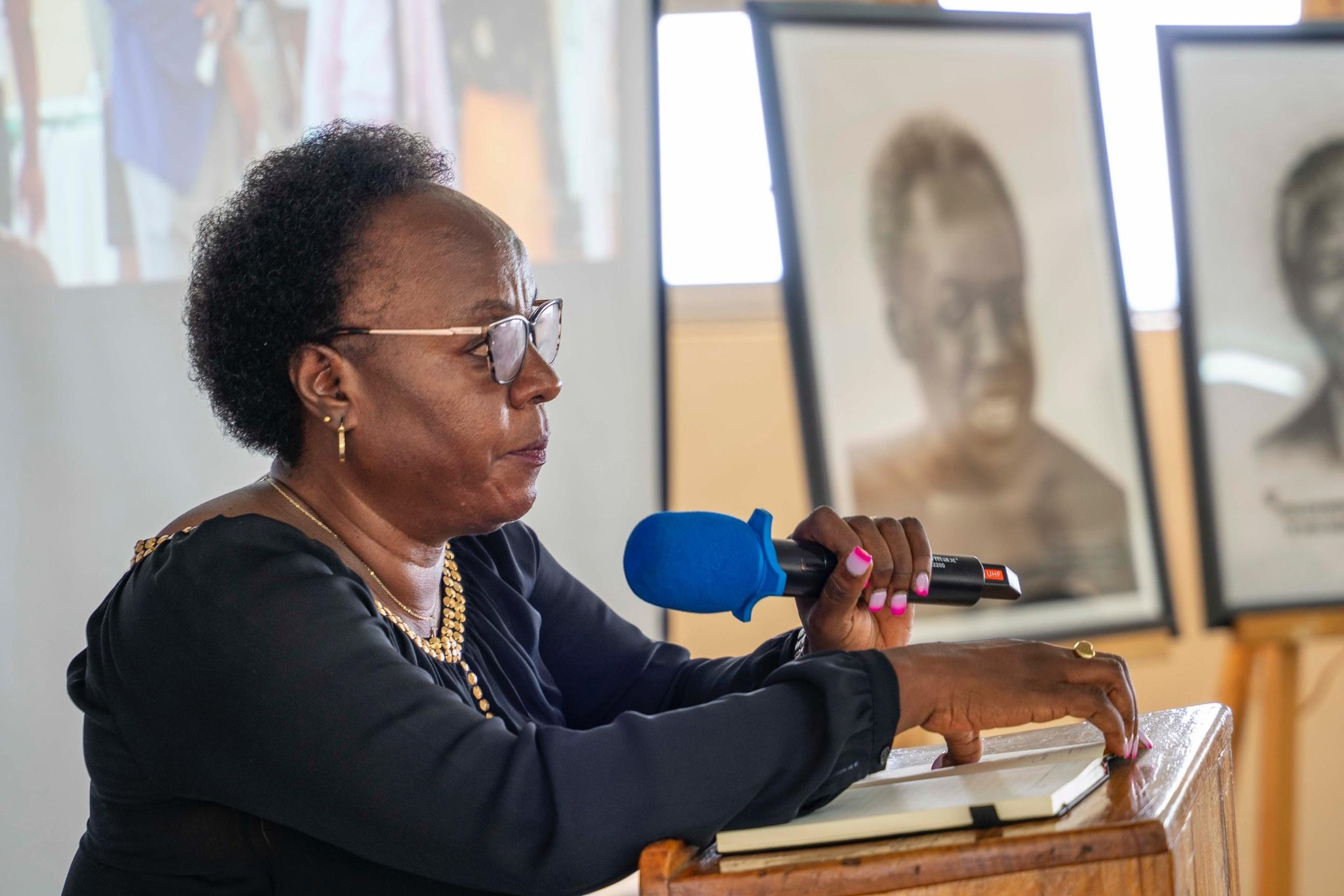
“You Are Today’s Leaders” — Message from Mountains of the Moon University
Representing the Vice Chancellor, Prof. Pius Coxwell Achanga, Mrs. Roselyne Ssali—the Dean of Students—affirmed the university’s strong commitment to cultivating ethical, capable, and community-oriented leaders.
She emphasized the value of inter-institutional collaboration, noting that leadership thrives on shared learning and collective growth. She encouraged participants to engage actively, exchange ideas, and learn from one another.
Addressing the youth directly, Mrs. Ssali underscored that leadership is not a distant possibility but a present responsibility.
“You are not here by mistake,” she said. “The saying that you are ‘tomorrow’s leaders’ does not apply. You are today’s leaders, and that is something we cannot take for granted.”
She commended the JNLC–UNDP collaboration for expanding leadership opportunities and equipping young people with practical, real-world skills.
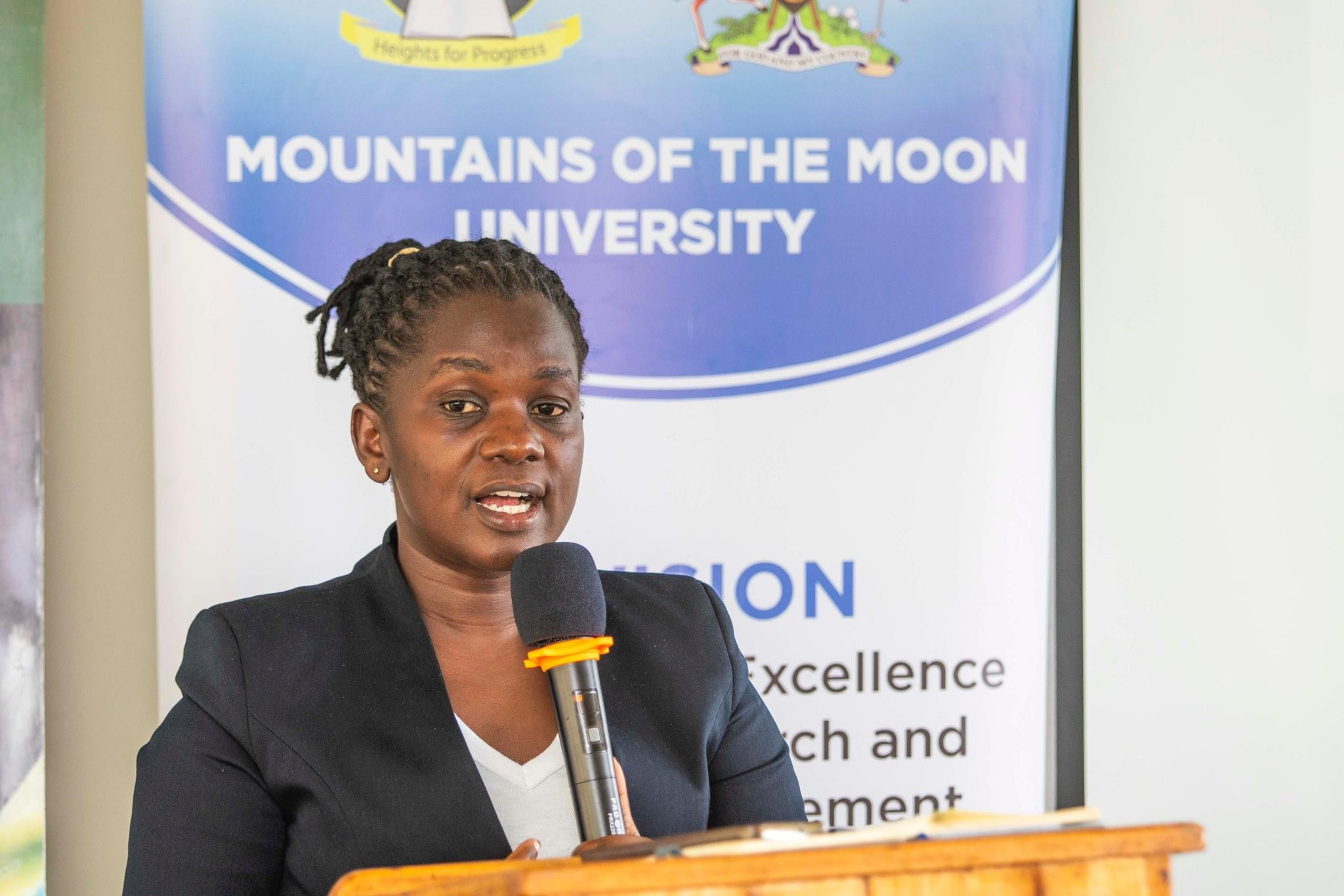
Leadership, Intellect, Capacity, Health, and Safety — Insights from the RCC
Officially opening the training, Ms. Asuman Nasike, Resident City Commissioner of Fort Portal City, shared her inspiring journey from Youth Councillor to RCC. She encouraged participants to treat every leadership role as a “nursery bed” for growth and reminded them that leadership is driven by intellect and capacity—not age or physical size.
“In your roles as local, youth, and women leaders, remember that leadership is defined by capacity, not size. It is about the mind, not the stature. I may be small in size, yet I lead this city. Let my example prove to you that young people can lead and make a difference,” she said.

She highlighted essential leadership qualities: integrity to earn trust, effective communication through feedback, leading by example, decisiveness in difficult moments, and resilience in the face of setbacks. She also emphasized personal well-being, responsible health practices, and surrounding oneself with mentors and peers who inspire growth.

Learning from Nyerere’s Leadership Ideals
Drawing from the life and leadership of Mwalimu Julius Nyerere, Mr. Ivan Ssegawa Sebastian, former EAC Youth Ambassador to Uganda, outlined enduring values that shaped Nyerere’s leadership: human dignity, collective responsibility, unity and cultural identity, and service above self.
These ideals, he noted, remain essential foundations for ethical and people-centered leadership today.

Principles of Servant Leadership
Leadership trainer and clinical psychologist Mr. Ronald Ssaazi guided participants through the principles of servant leadership, drawing insights from leaders like Nyerere, Nelson Mandela, Martin Luther King Jr., and Gamal Abdel Nasser.
He emphasized that leadership begins with self-leadership—self-reflection, self-regulation, and deliberate goal-setting. Quoting John Maxwell’s famous line, “Leadership is influence—nothing more, nothing less,” he reminded participants that they must influence themselves before they can influence others. “You cannot claim to be a leader if no one wants to follow you. Leadership begins when you influence people through your direction, ideas, and example—and that influence must start with self-leadership,” he stressed.
Mr. Ssaazi highlighted that servant leadership is rooted in service—lifting others, meeting them where they are, and helping them grow. He underscored the importance of character, emotional intelligence, meaningful relationships, and consistent action.
He also shared the “Three R’s” framework—Requirements, Returns, and Rewards—encouraging participants to focus on high-impact actions and remain motivated as they pursue purposeful leadership.
Emotional Intelligence & Mental Wellness for Effective Leadership
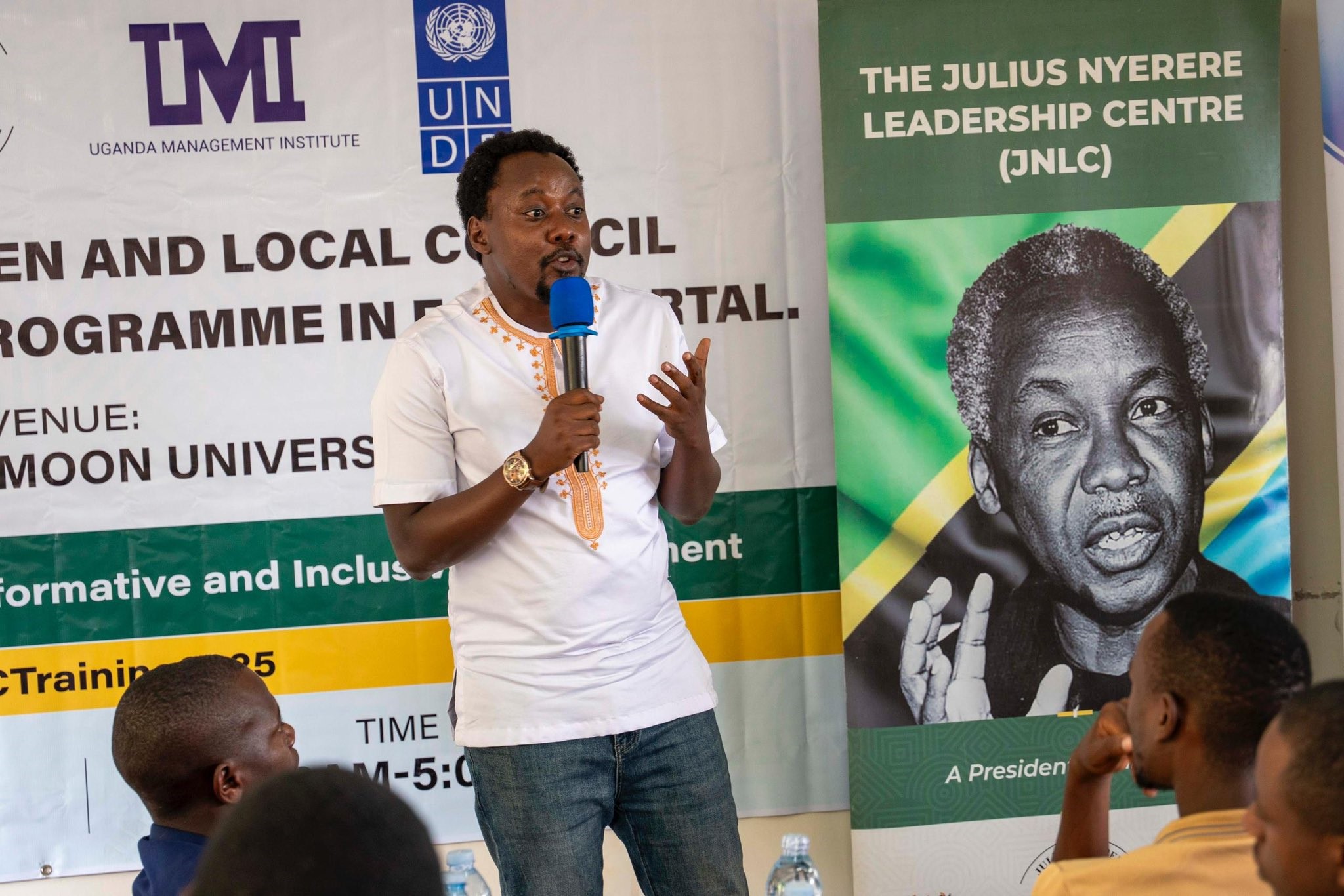
Dr. Gardner Herbert Rwakiseta, Programme Coordinator at JNLC, underscored that effective leadership is impossible without mental and emotional balance. He explained that clarity, creativity, and inner peace form the foundation of impactful leadership.
Using a powerful analogy, he noted:
“A smartphone may look perfect on the outside, but without a functioning battery, it cannot operate.” He likened mental health to a leader’s battery—indispensable to performance. Dr. Gardner explained that mental wellness is more than the absence of illness; it determines how leaders think, relate, and make decisions. He outlined common mental health challenges and their symptoms and provided practical tools for maintaining emotional balance, including exercise, sleep hygiene, healthy relationships, journaling, and setting digital boundaries.
On digital discipline he advised:
“The small screens were not designed to control you. Manage distractions by limiting unnecessary notifications and practicing intentional use of technology.”
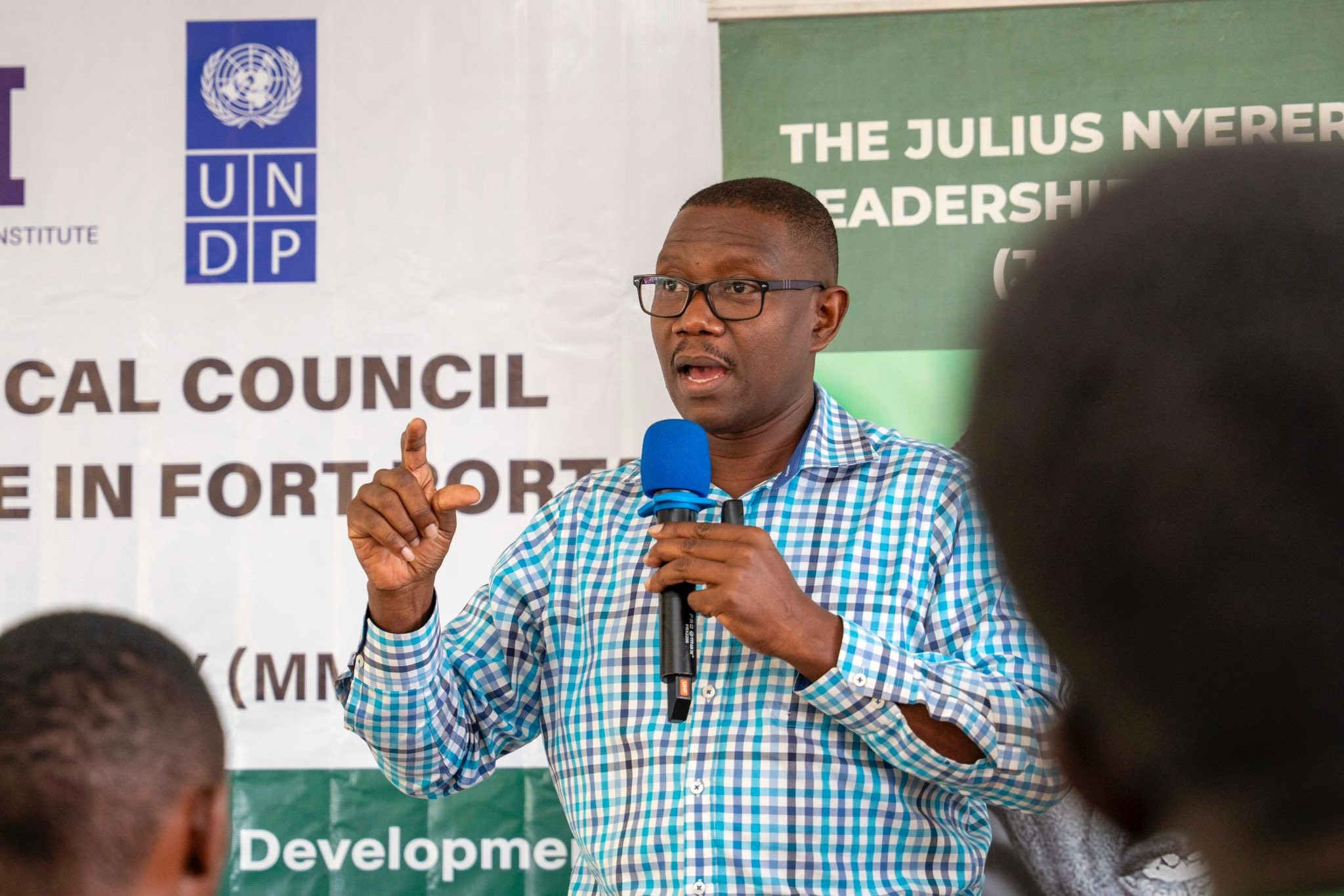
The Power of Effective Communication
Mr. Henry Kasacca, Director of Dialogue and Democracy, emphasized that communication is at the heart of leadership. His session equipped participants with public-speaking skills, active listening, strategies for giving and receiving feedback, and tips for crafting impactful elevator pitches.
He reminded participants that public speaking is not merely addressing a crowd—it is connecting with people, informing them, and motivating them to act. “Preparation, positive non-verbal communication, and confidence are key. Knowing your audience, understanding the purpose of your speech, and structuring your message ensure that it resonates,” he explained.
He noted that leaders often have only a minute to capture attention, stressing the importance of clarity, relatability, and confidence. He also emphasized constructive feedback as an essential tool for growth.
The Meaning of Power in Leadership
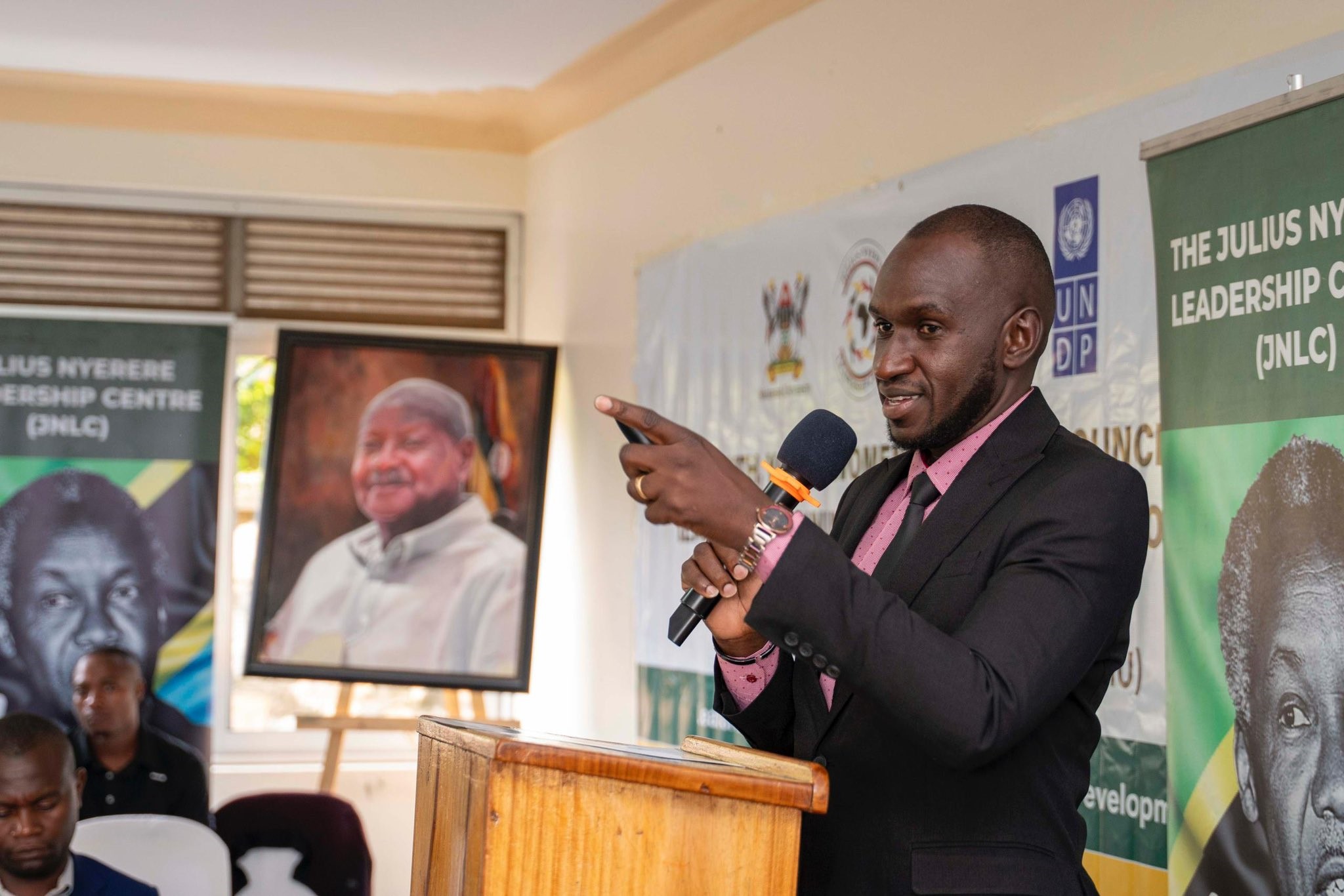
Mr. David Nyaribi, Leadership and Governance Specialist at ActionAid International, emphasized that leadership is not defined by position but by the ability to influence, mobilize, and transform communities.
He distinguished authority from power, noting that while authority is granted, power—knowledge, confidence, action—is accessible to everyone.
He outlined four essential types of power:
- Power Over – traditional authority
- Power To – capacity to act and implement
- Power Within – inner confidence and resilience
- Power With – collective strength through collaboration
Mr. Nyaribi urged participants to use power responsibly and be mindful of who they grant influence over them. He also explained the different spaces, levels, and sources of power, from households to global diplomacy, and highlighted the difference between mobilizing (short-term energy) and organizing (long-term structure). “Mobilizing gets people to the table; organizing makes the table productive,” he noted.
Youth Voices: Picking Up the Droplets of Leadership
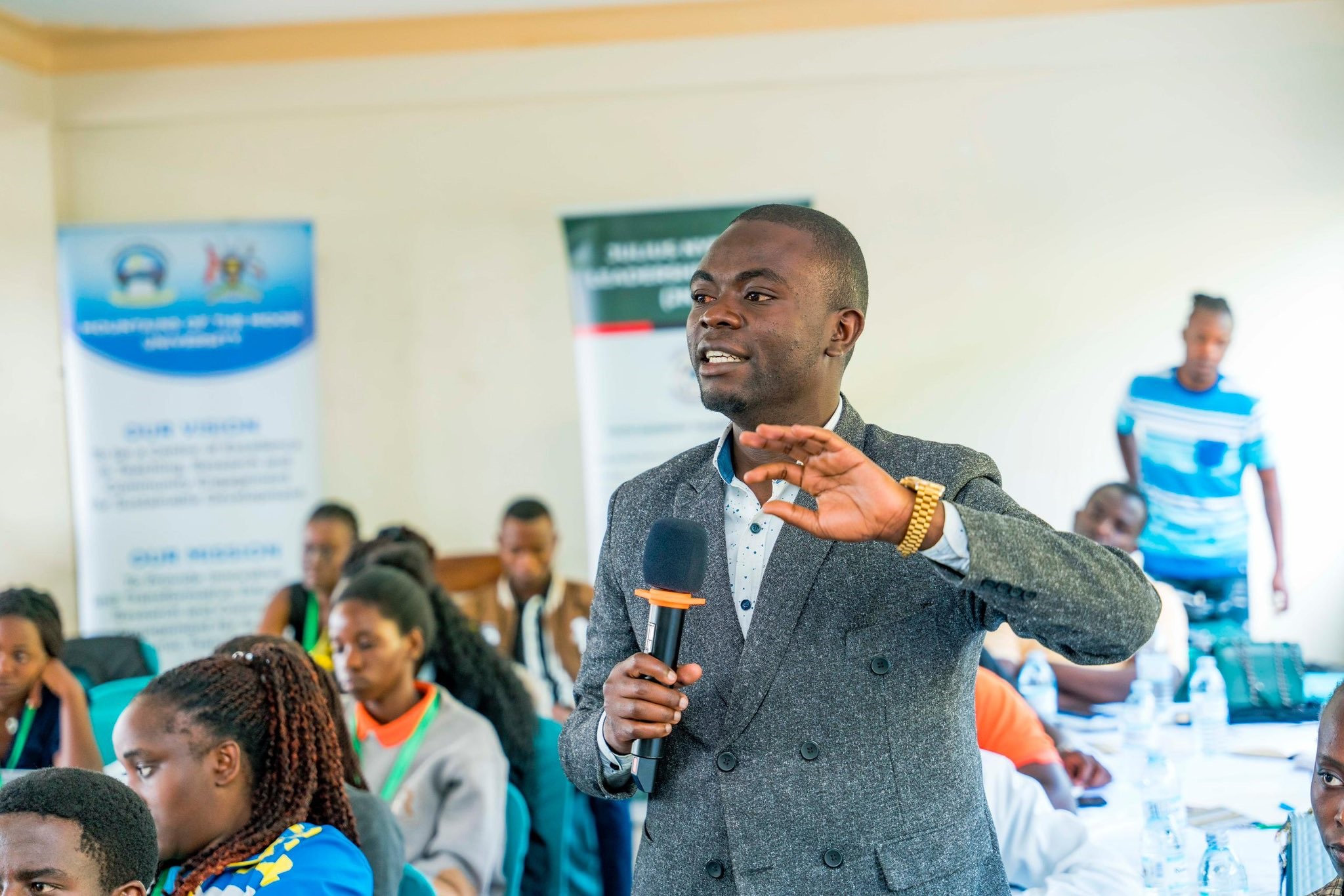
Bringing a youth perspective, Mr. Ivan Hurira, Speaker of the Regional Youth Parliament, shared the story of a brave hummingbird dropping water on a burning forest, insisting, “I am doing the little I can.” He likened this to the role of young Ugandans—small but consistent actions can spark meaningful change.
“When the forest of Uganda is burning, we, the young people, can do the little we can,” he said.
He encouraged participants to treat the knowledge and skills gained during the training as droplets of leadership—resources they should carry back to their communities to contribute to transformation.
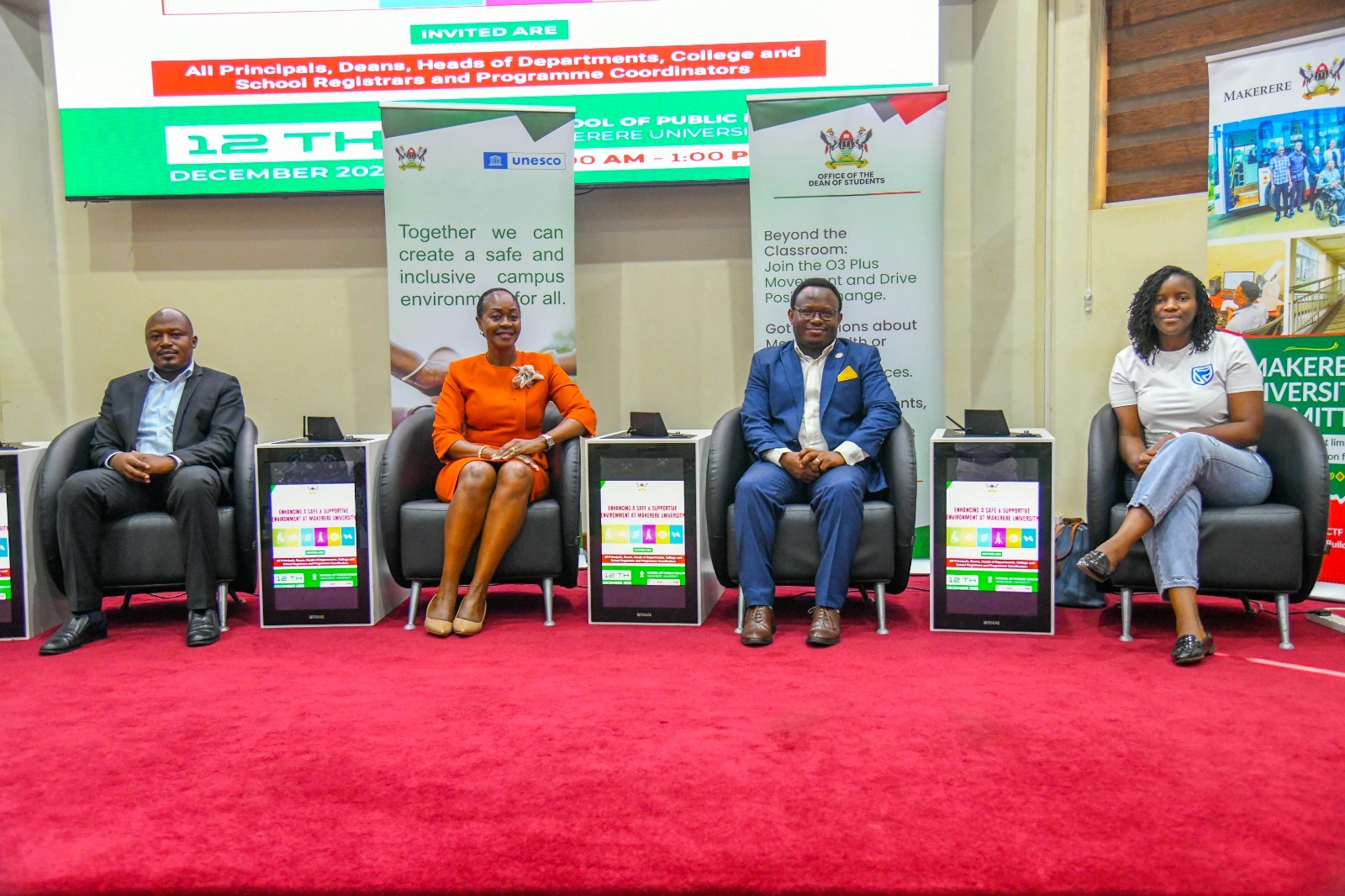
In a move to promote a safe, supportive and inclusive environment at Makerere University, the Office of the Dean of Students has empowered staff members from various colleges, departments and administrative units to champion disability-inclusive education.
Speaking during the capacity building session on inclusion for Students and Staff with Disabilities held at the School of Public Health Auditorium on Friday December 12, 2025, Dr Winfred Kabumbuli, the Dean of Students, noted that her office has decided to train staff to be able to have a campus where every student and staff member feels safe, respected, valued and empowered to thrive.
“Inclusion is not achieved by policy documents alone, it is achieved through everyday actions when a lecturer adapts teaching materials, when departments provide accessible formats, when buildings are designed with universal access in mind and when we intentionally create belonging for students and staff with disabilities,” Dr Kabumbuli, said.

The University has made significant strides in promoting disability inclusion. There is a policy on Persons with Disabilities and also a Disability support center, enabling students with disabilities to acquire assistive devices to enable them integrate in the learning and social environment.
While addressing participants, Prof. Winston Tumps Ireeta, the Acting Deputy Vice Chancellor (Finance and Administration) who represented the Vice Chancellor Prof. Barnabas Nawangwe, urged all university leaders to ensure that lecture rooms, offices and shared spaces fully reflect the principles of accessibility and universal design.
“My office is committed to improving physical access and ensuring that our infrastructure developments embrace inclusive standards. During the session, let us identify gaps, share insights, and commit to concrete actions. Makerere University’s pursuit of excellence rests on the foundation of safety, dignity, equality, and inclusion,” Prof, Ireeta, said.
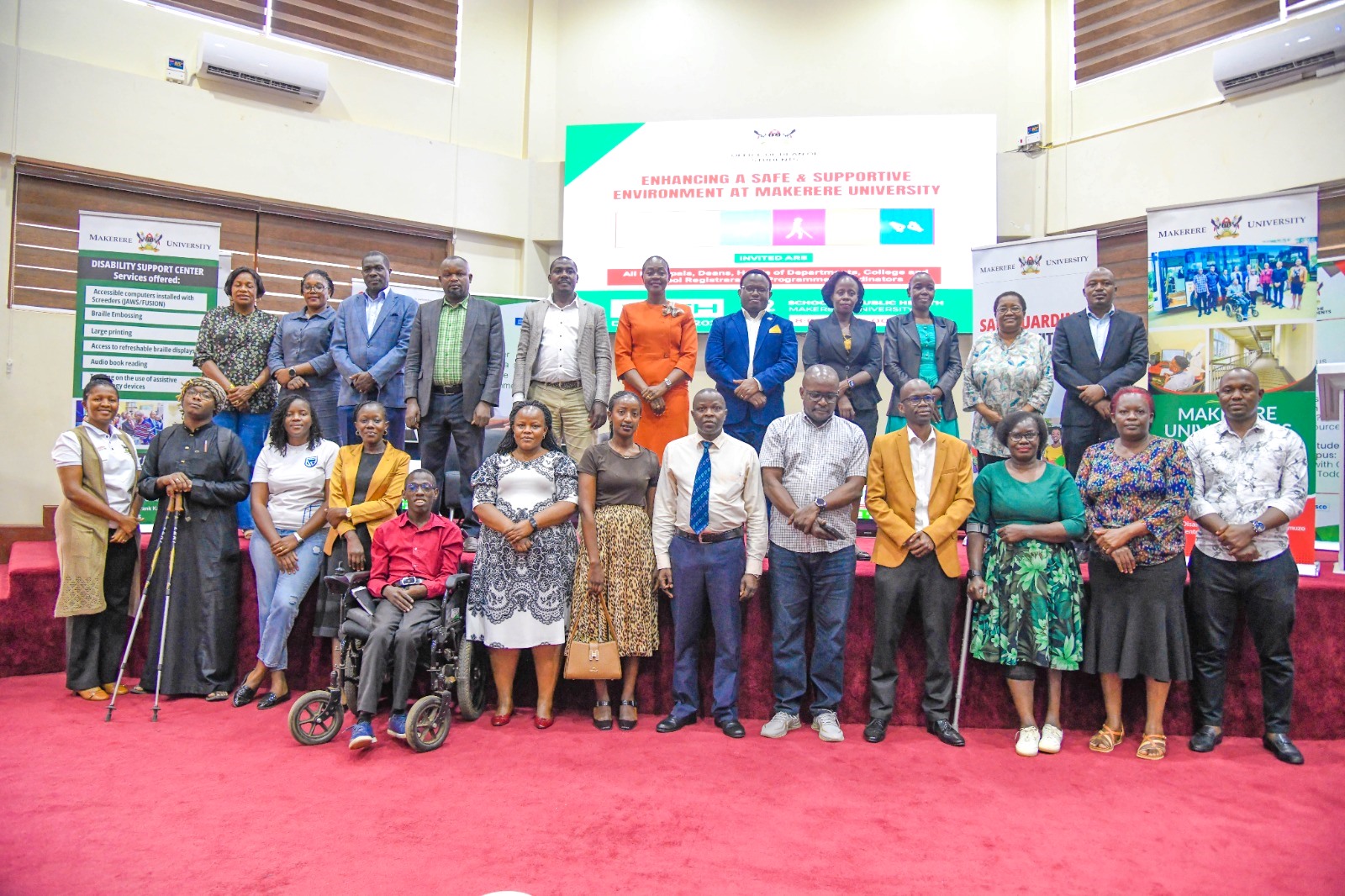
The University is a place of learning but also has policies on safeguarding and policy on Persons with Disabilities to ensure that safety, dignity and inclusion form the foundation upon which teaching, learning and research occur.
Prof Ireeta extended appreciation to the Dean of Students and the Mastercard Foundation Scholars Program at Makerere University for the consistent leadership provided in driving safeguarding and inclusion agenda.
Speaking at the event, Prof. Justine Namaalwa Jjumba, Director of the Mastercard Foundation Scholars Program, highlighted the transformative partnership between Makerere University and the Mastercard Foundation, which began in 2013.
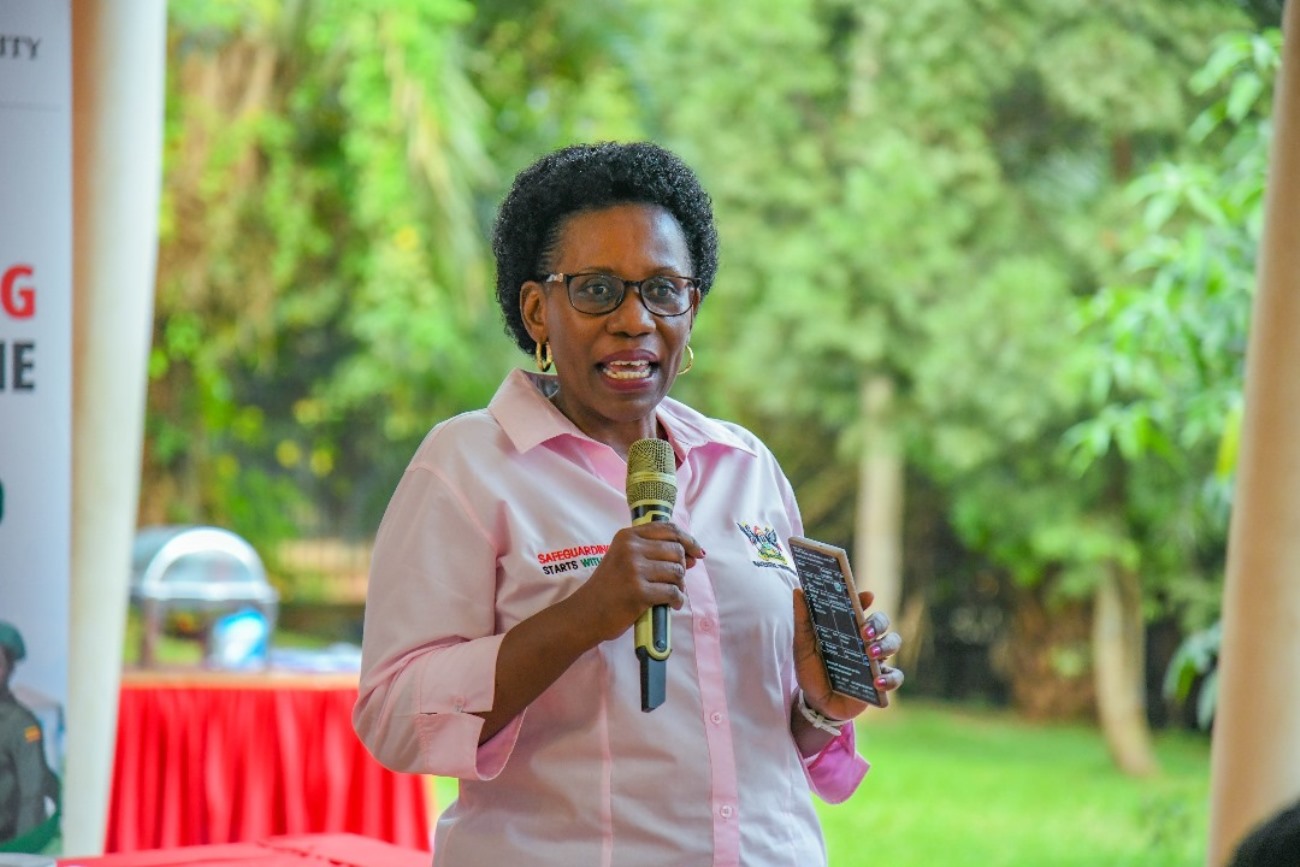
“Through this collaboration, the University has rolled out three key Educational initiatives: the Mastercard Foundation Scholars Program, offering 1,000 undergraduate scholarships (10% reserved for students with disabilities); the Africa Climate Collaborative, providing 250 MSc, 40 PhD, and 30 postdoctoral scholarships, with 10% dedicated to learners with disabilities; and e-Learning Initiatives, which allow students to pursue courses of their choice online, enhancing access and flexibility in education,” Prof Namaalwa, said.
During the session, different staff members highlighted that although the University, has made efforts to improve physical accessibility and strengthen the academic and non-academic environment, challenges including inadequate support and inaccessible facilities still exist.
Representing staff living with disabilities on the University Council, Mr. Amon Muteganda appealed to the Government to increase the number of students with disabilities admitted on government sponsorship and also stop choosing academic courses for them.

“I want to thank the Mastercard Foundation Scholars Program at Makerere University for ensuring that 10% of their scholarship slots are reserved for students with disabilities. As a University, we need to increase our enrolment of students with disabilities beyond the current 2%. We should also develop a policy that supports students across all academic programs. If a student without hands wants to study architecture, we must support them rather than discourage them, it is the mind that matters, not the physical,” he emphasized.
Mr. Mutenganda also called upon the University to revise its disability policy, with a particular focus on strengthening accommodation and support for persons with disabilities when they are employed.
Speaking at the event, Mr. Marvin Galiwango, a lecturer at the College of Computing and Information Sciences (CoCIS), emphasized that instead of continually relying on imported wheelchairs and technologies, engineers at the College of Engineering, Design, Art and Technology (CEDAT) should take the initiative to develop technologies and wheelchairs for persons with Disabilities.
“Most persons with disabilities rely on imported technology, which they often cannot afford, leaving them with no choice but to beg. We have engineers at CEDAT who can design and produce these technologies locally, making them accessible and affordable for our people,” he noted,”
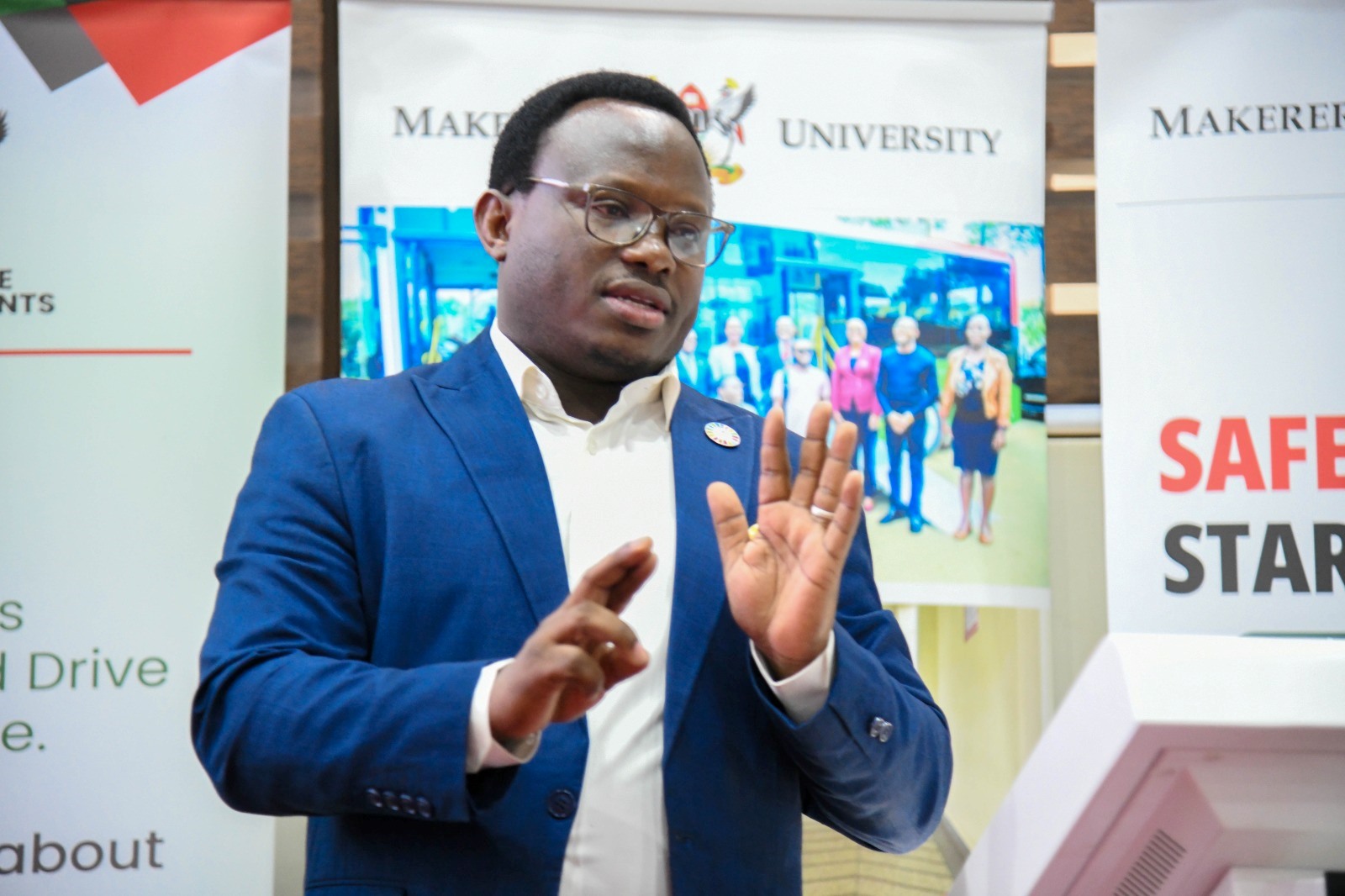
In his keynote address, Mr. Ambrose Murangira, a senior expert in disability inclusion at Light for the World, outlined the basic principles of accessible lecture rooms, including a preference for ground-floor rooms or those reachable via a functioning elevator, wide doors, corridors and clear passable pathways between tables and rows.
Students with disabilities should be provided with accessible seats at the front that offer clear sight-lines, tables with extra legroom, and adequate lighting around the presenter and board. Regarding facilities, signposts should indicate the nearest accessible washrooms and emergency exits, which must be both physically and visually accessible.” Mr Murangira, said.
On 1st December, the University joined the world to celebrate the International Day of Persons Disabilities. Students, staff and Members of Parliament with visual, hearing and physical disabilities filled the Main Hall with the aim to promote inclusion, raise awareness on disability rights, and encourage a supportive learning environment for everyone to thrive.
Trending
-

 General2 weeks ago
General2 weeks agoCall For Expression of Interest: WEE-DiFine Research Initiative
-
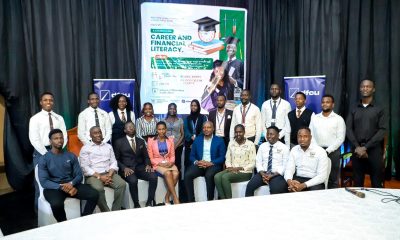
 General2 weeks ago
General2 weeks agoFrom Campus to Career: Makerere Advancement Office, 91st Guild and the DFCU Foundation Equip Students with Financial and Employability Skills
-
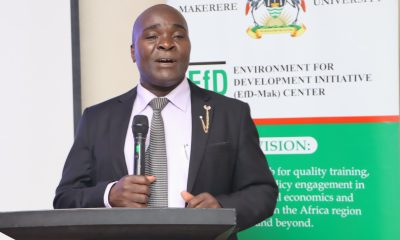
 Business & Management2 weeks ago
Business & Management2 weeks agoEfD, MDAs & Private Sector Strategize on Scaling up the Adoption of Climate Smart Agriculture in Uganda
-

 Humanities & Social Sciences6 days ago
Humanities & Social Sciences6 days agoCollege of Humanities and Social Sciences Launches Five Groundbreaking Publications
-
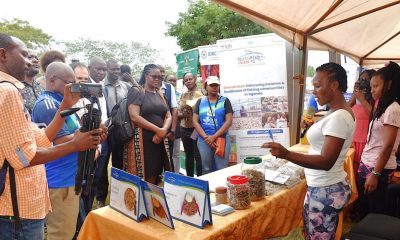
 Natural Sciences1 week ago
Natural Sciences1 week agoJinja Fish Festival: Mak Recognized for its outstanding contribution to the Development of the Fisheries Sector
